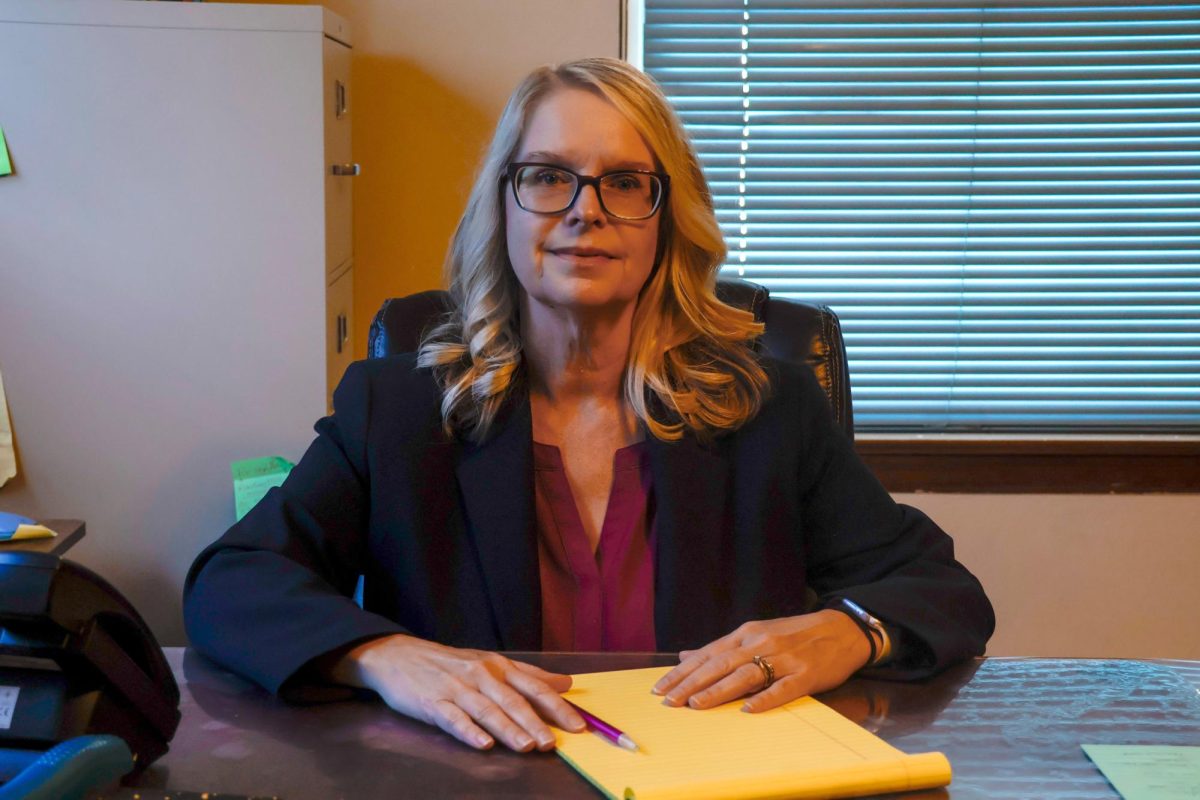Changes to consolidate ceremonies
February 9, 2012
Cheng : graduation changes will unify campus, majors
While changes to graduation commencements were made to improve the celebrations, some students said they prefer the events remain the same.
Some major changes to be implemented this spring include the elimination of the August commencement, and ceremonies will no longer be held at individual colleges but rather take place in three different commencements at the SIU Arena. The purpose of the adjustments, which were headed by Chancellor Rita Cheng, is to make the day more special for graduating students, she said.
Advertisement
The alteration of graduation traditions on campus arose out of concerns about the ceremonies structure.
“I don’t think there’s any argument around campus that the graduation shouldn’t have improvements,” Cheng said. “When we looked across the country, we knew we had some things that needed some attention.”
Cheng said the graduation changes were also a part of her effort to improve the university’s image.
“We want to celebrate our pride with major events,” she said.
Cheng said she started the graduation review process by forming a task force.
Kimberly Leonard, dean of the College of Liberal Arts and co-chair of the committee, said the group met frequently to take an in-depth look at what could improve SIUC’s graduations.
“Our overreaching objective was to see how we could make it more fun,” she said. “More pomp and circumstance.”
Advertisement*
Another purpose of the review was to attract those who might not consider attending, Leonard said.
“Maybe if there were students on the fence about going to the commencement, they will attend now,” she said.
One example the task force looked into for planning the new event was having the August convocation on campus, which both Cheng and Leonard said was well-received.
“We’re trying to think of the commencement as the other side of the bookend,” Leonard said.
In the process of making changes, Leonard said the group considered holding one large ceremony, holding the event off-campus or even distributing tickets to limit the amount of guests a student could invite.
“We decided against that because this is a university where sometimes a lot of people – a lot of first-generation college students – have their whole family come out,” Leonard said.
For Timothy Brinson, a senior from Michigan studying advertising, a limit to how many people he could have attend would have affected his graduation experience, he said, as he plans for several of his relatives to be present that day. But he said several of the changes that were made will still affect him.
Brinson said he planned to graduate in August, but because the ceremony will no longer be held then, he is going to walk in May as a part of a new policy that enables students with six remaining credit hours to walk at graduation beforehand. The new policy makes it possible for students finishing their studies with six or fewer credit hours in the summer to participate in May commencement.
Brinson said his other concerns include the early timing of his ceremony – 8:30 a.m. – which will require his family to travel to SIU the day before. He also mentioned the longer length of the ceremony. Brinson said for some attendees, it may be a challenge to sit for that long.
Still, Brinson said, he doesn’t think the changes will hinder students and their families from attending.
“For us, it’s a big deal because we’re seniors this year,” he said. “When something is new, it always affects the first ones.”
For other students, the changes have affected their overall graduation plans. Ashton Jobe, a senior from Chicago studying economics, said he had planned on taking summer classes and graduating in August, but since there is no ceremony, he is going to postpone his summer classes until the fall.
“It kind of threw everything off,” he said.
Ticarra Sharp, a senior studying social work from Chicago, said she will finish school in August but will return to the university in December to graduate because she doesn’t qualify for the early ceremony policy.
Although Sharp said she has attended ceremonies at SIUC that have lasted nearly two hours, Jamin Champion, an undecided junior from Waterloo, said one of the things he was most impressed with at the ceremony he attended was how short it was.
“As far as myself, if I were going to attend a friend’s, I’d be less likely to go if it were longer,” he said.
Champion said he also thinks the consolidated ceremonies might take away from the intimacy of smaller groups.
“I think it’s less enjoyable,” he said. “If you’re graduating, you want it to be with people you know.”
As outlined in an email the Chancellor sent to the university community Wednesday, the three ceremonies will be held on May 12. The 8:30 a.m. ceremony will include the Colleges of Liberal Arts and Mass Communication and Media Arts, the 1:30 p.m. ceremony will include the Colleges of Agricultural Sciences, Applied Sciences and Arts, Engineering and Science, and the 5:30 p.m. ceremony will include the Colleges of Business, Education and Human Services and the School of Law, the email states.
Graduate and law degrees will be recognized along with undergraduates, and Alumni Achievement Recipients will also be recognized at the events.
Cheng said she has heard both negative and positive responses to the changes. In order to not take away from the closeness of the individual ceremonies, she said, the graduation ceremonies will serve as a main campus event and the colleges can have another type of event. The College of Engineering has already planned an event, she said, and the law school will continue to hold its hooding ceremony, which is a traditional event for graduate and law schools where students wear hoods at graduation.
Although Cheng said she wasn’t certain why the ceremonies were divided among colleges in the first place, she said it may have been because of decentralization on the campus from a turnover in leadership. With the new ceremony, which she said will include a well-known person to come as a speaker, Cheng said she hopes it will serve as an event students will remember fondly.
“We want to make it a grand event,” she said.
Advertisement









